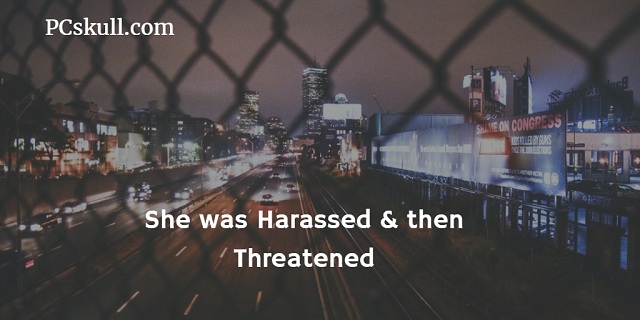Why Investors Are Disappointed About Toxic Work Culture of Uber?
A survey says that Uber’s customers are the largest beneficial people, rather than the company and the drivers. Uber has about 450,000 registered drivers in the US alone. The company offers services in more than 198 cities in the US. The economists have found that the company’s ride-hailing service has generated $6.8 billion in the customer surplus in the US last year.
The economic measure of the customer benefits has given rise to both the Uber drivers and the revenue of Uber. And the company at last. As everything was going smooth, Uber hired Jeff Jones as the President of the company. They have placed an instruction to improve the relationship between the Uber drivers and to correct the negative image of the company among the public. But, as days passed by, Jones could not able to solve those problems. He resigned the post by saying his approach and beliefs to the leadership has guided his career are conflicting with what he saw and experienced at Uber.

Jones resignation is one of the drawbacks for the popular ride-hailing company. Travis Kalanick, CEO of uber has apologized personally for all the problems that happened at the company. And he also said that he has to grow up. Experts say that the steps taken by the CEO of Uber to address the harassment issue are not effective.
Table of Contents
Investors Are Disappointed Toxic Work Culture of Uber:
Jones’s resignation is a sign that Uber is willing to change its policies and the way it deals with its services. Uber’s idea of the marketplace in the ride-sharing platform is just a single step to the network of self-driving cars. The taxi service of Uber was regulated by considering little human safety and consumer interests. But Uber has planned earlier that these rules should not apply to its increasing series of problems; these are the things that could easily destroy the company.
#1 Ride First, Questions Later
The popular taxicab market in the United States was surrounded by the regulations that are restricting the supply of the Uber cabs, they impose that these cabs are far beyond the safety concerns. All the drivers in the country require a license and all the vehicles on the road have their own regulations. All the vehicles have to pass through the environmental and safety tests. In all the states, requesting a permission to drive a car is a straightforward process. But in some cities, getting the permission to take people for rides is a cumbersome process. It requires a special permit for the ride-hailing purpose.
This process requires the more financial returns to the owners of the permits. In most of the cases, owners will not be the drivers of the cabs.
In cities like New York and Washington DC, the taxis will be unavailable in the low-income areas. In the cities like Los Angeles, the taxi industry will be focused on the tourists rather than providing services to the local people.
They even started Suburban Riders to enjoy fairy rides.
Uber’s solution to this problem is to start their service in the legal gray area. In New York, Uber has mobilized 100,000 of their customers.
#2 Kalanick- the Libertarian
Once Uber existed in cities, most of the people in the cities liked its services. And the political authorities paved way for the basic idea that more ride availability was going to make many people better and they can have good commutes. But the taxi market is highly regulated. The CEO of Uber appears to be the true believer in smashing the state.
In the practical sense, Uber operates in highly populated cities and it requires the political cooperation from the elected officials of the Democratic Party. To this end, Uber has high political connections with the blue-state politicians, who can help them in the desired ways but Republicans can’t do that. Kalanick and his inner circle are the people who understand things in a practical way and they will try out the thing practically, without believing in them.
#3 Uber wants to make Drivers Out-dated
Almost all the corporate management frameworks enter into some degree of a dispute with their employees. At the same time, company’s workers are the best playing tools in the existential regulatory battles.
A natural step for the matured company like Uber, which faces significant regulatory challenges, will try to recruit drivers as allies to make sure that their service is safe and useful.
Soon the company is going to implement the robotic technology. The self-driving cars will replace drivers. The big question mark is that what will happen to the hundreds of thousands of Uber drivers. Till now, there is no proper answer for this question. If this continues, the whole of Uber drivers will lose their living and they go in search of other jobs. We can’t guarantee that all the drivers will get a job. What will happen to the drivers who don’t get a job? Uber should give a valid reason for this.
#4 Destructive Culture of Uber
Early investors in Uber have criticized the company for failing to end the toxic culture of harassment.

The former employee of Uber, Susan Fowler has described in a blog how she has been harassed by the manager and the Human resource manager. Even upper management refused to punish those managers. Rather, the company has threatened her with the bad performance review. The company has maintained it secretly, without letting their company name spoil.
Uber’s success in terms of market share, valuation, and revenues are impressive. But no one can excuse such a worst culture behavior. It has created disrespect from many.
Kapors are the only investors who have publically commented against Uber. And he wrote that he feels that his company has hit the dead end.
Uber investors and the other board members did not immediately respond to those requests.
Uber failed to address the Kapors letter directly. But the company has started its commitment to reinvestigate the Fowler’s claims. For this, uber has employed former Attorney General of US, Eric Holder to take care of the investigation along with the attorney Tammy Albarran.
The news was published after few days Fowler wrote about her wild experiences. One of the former employees of Uber has said that managers have harassed some of the employees. They have threatened the employees with violence and they encouraged a toxic work culture within the company.
Kapors has said that Uber’s work culture is being afflicted by disrespect. The main thing is that the company has a lack of diversity.
Wrapping Up…
The investors have said that they have tried to work with the company tolerating these kinds of scenes. Now, they refuse to have hope on the company’s culture.
They are speaking up now. They are bringing out the truths of Uber because they are very much disappointed and frustrated.
Uber has already faced this kind of harassment case. That case involved an Uber driver harassed a passenger, and the company didn’t take any steps against this till date. Uber should answer for all these issues.
The company is keeping on growing its business by expanding its services, but it doesn’t bother about all these issues. And it didn’t provide any reason or excuse for this. The company has to take care of all these issues. From now, it should have a friendly work culture. It should respect the feelings of all the employees working in the company.
